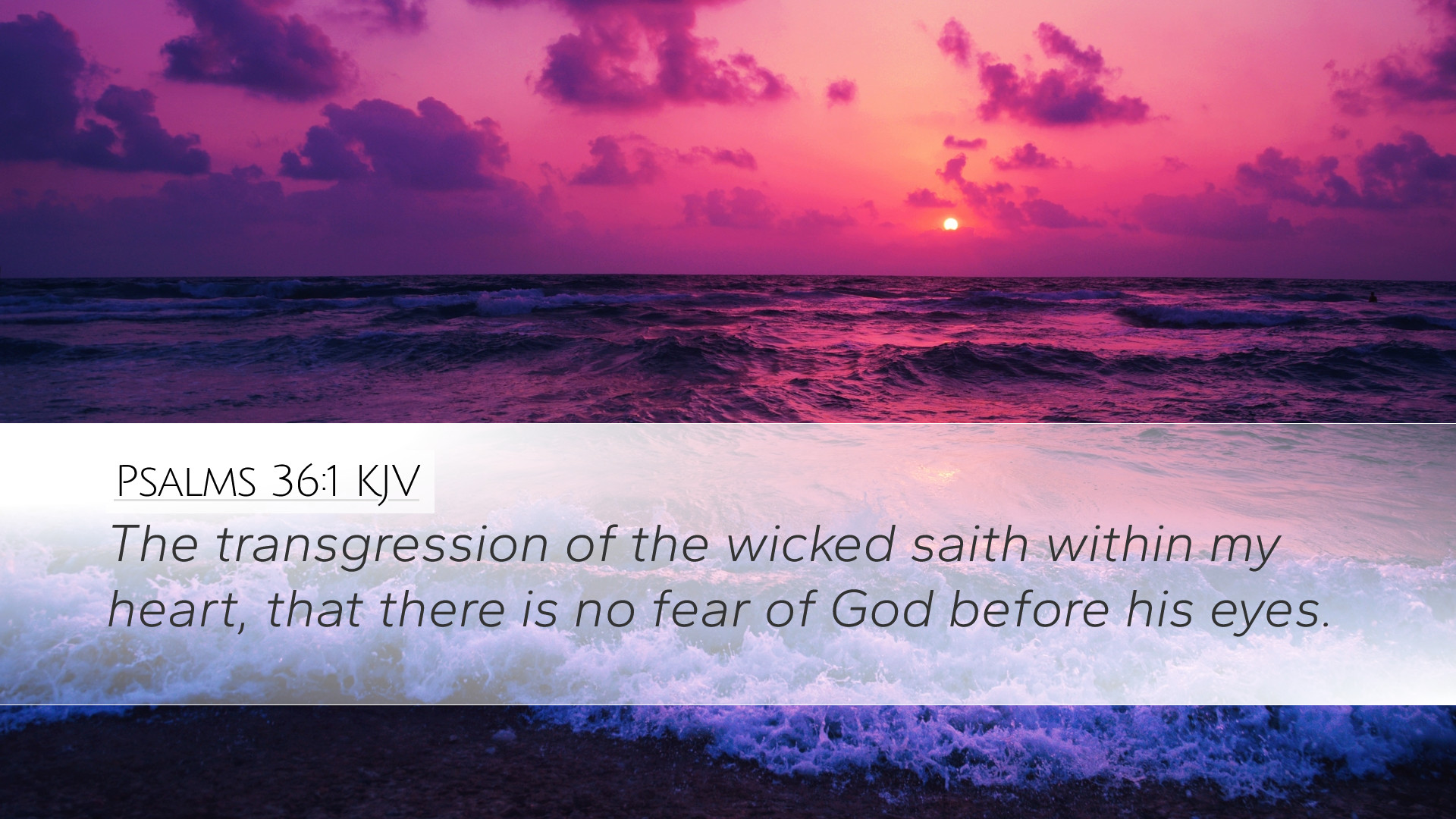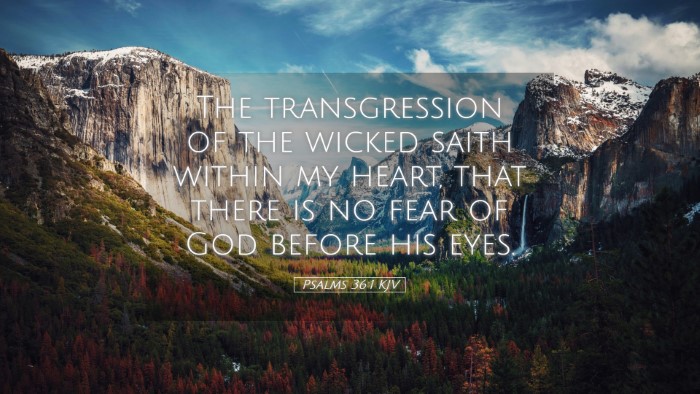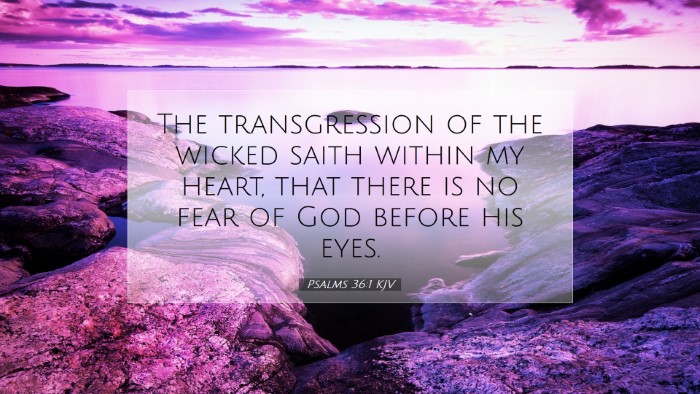Psalms 36:1 (KJV): "The transgression of the wicked saith within my heart, that there is no fear of God before his eyes."
This verse sets the stage for a profound exploration of the dynamics between human sinfulness and the awareness of God's holiness. The Psalmist reflects on the inner workings of the wicked, revealing not only their moral decay but also the spiritual blindness that accompanies it.
Exegesis and Context
The setting of Psalm 36 is largely understood within the context of an observation of the wicked's attitude towards God. The Psalmist, traditionally attributed to David, contrasts the behaviors and consequences of the wicked with the righteousness of God. In this verse, the term "wicked" refers to those who act with a blatant disregard for God's law and character.
The Transgression of the Wicked
Matthew Henry emphasizes the arrogance of the wicked, noting that their transgressions are not just actions but also a manifestation of their hearts. It is this inner defiance against God that leads them to believe they can act without consequence.
Albert Barnes echoes this sentiment by stating that the wicked have become so embroiled in their sin that they no longer recognize the presence or fear of God. He highlights that this lack of awareness is a significant indicator of their spiritual condition.
Adam Clarke further elaborates on the notion of transgression, suggesting that the Hebrew word for 'transgression' implies a willful violation of boundaries. This indicates a deep-seated rebellion, as the wicked consciously choose to ignore divine authority.
Fear of God
The phrase “there is no fear of God before his eyes” is critical to understanding the spiritual state of the wicked. The fear of the Lord is not merely a feeling of dread but encompasses reverence, awe, and understanding of God's holiness.
Matthew Henry notes that where there is no fear of God, there is a corresponding lack of accountability. The wicked live as if they are beyond judgment, leading to increasingly reckless behavior. This perspective fills the reader with a deep sense of caution regarding the consequences of sin.
Albert Barnes also connects the absence of the fear of God to moral decay, arguing that it results in a false sense of security. Such individuals believe they can operate outside of God’s judgment, leading to further entrenchment in sin.
Implications for Believers
For pastors and spiritual leaders, this verse serves as a gentle reminder of the nature of sin and its potential to obscure the awareness of God. It teaches that regular reflection on one’s heart and motives is essential to maintain a close relationship with the Lord.
Adam Clarke wisely advises believers to cultivate a healthy fear of God. Emphasizing that this fear is the beginning of wisdom, Clarke points out that it is vital for recognizing God’s authority in our lives.
In congregational settings, the fear of God can nurture a culture of reverence and holiness, encouraging believers to take sin seriously and pursue righteousness. This ethos is crucial for both individual and collective growth in faith.
The Nature of Humanity
Psalm 36:1 offers a sobering lens through which to view the nature of humanity in its fallen state. The Psalmist points out a universal truth: apart from God, the inclination towards sin and rebellion is strong.
Matthew Henry remarks that understanding the seriousness of sin is instrumental for genuine repentance and transformation. Sin darkens the heart and blinds the mind, leading individuals away from the light of God’s truth.
The Voice of Conscience
The verse serves as a keen observation of how inner consciousness can either align with or oppose divine truth. The wicked’s inner dialogue, described as "saith within my heart," reflects a conscience that has become silenced or distorted by unrighteousness.
Albert Barnes comments on the conscience, stating that it ought to be a warning to individuals regarding the reality of sin and the impending judgment that comes from ignoring God. This suggests a dual struggle: the act of sinning while simultaneously contending with the moral understanding that these actions are wrong.
Final Reflections
The verse closes with a scene that is not only descriptive of the wicked but also serves as a poignant reminder for all believers: to remain vigilant against the gradual numbing of the conscience and the fading of the fear of God.
As theologians and ministers reflect on this verse, they are prompted to ask themselves critical questions regarding their own lives and the lives of those they guide: Are we walking in the fear of God? Are we aware of the transgressions that may lurk in our hearts?
In conclusion, Psalm 36:1 stands as a powerful declaration of the need for vigilance, humility, and a renewed reverence for God in our daily lives. May this realization propel believers towards greater faithfulness and commitment to righteousness.


